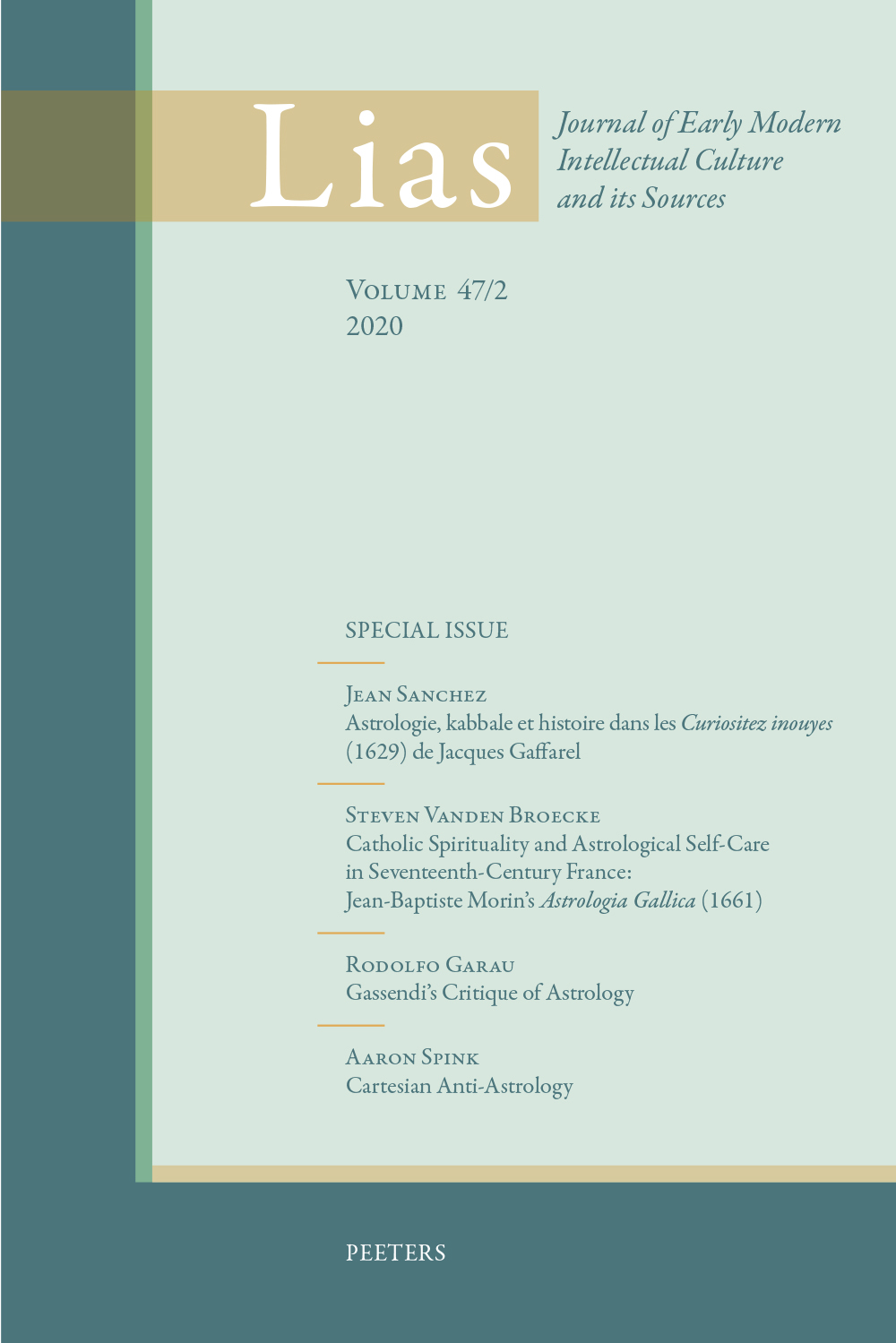 previous article in this issue previous article in this issue | next article in this issue  |

Preview first page |
Document Details : Title: Why Learn Hebrew? Subtitle: Text and Translation, with an Introduction and Commentary, of Valerius Andreas' Linguae Hebraicae Encomium (1614) Author(s): DENECKER, Tim , VAN HECKE, Pierre Journal: Lias Volume: 45 Issue: 1 Date: 2018 Pages: 45-111 DOI: 10.2143/LIAS.45.1.3285540 Abstract : On 28 March 1612, Valerius Andreas (1588-1655) pronounced his inaugural oration as chair of Hebrew at the Louvain Collegium trilingue, at a time when efforts were made to revive the institution during the Twelve Years’ Truce. Andreas’ oration provided the basis for a booklet he published in 1614 with the Louvain printer Philip van Dormael, entitled Collegii trilinguis Buslidiani exordia ac progressus; item linguae Hebraicae encomium. Having first provided a history of the Collegium trilingue, Andreas devotes the second part of his work (Linguae Hebraicae encomium) to recommending the study of Hebrew. He argues that Hebrew is genealogically and hierarchically foremost among the world’s languages, refutes the negative aesthetic qualities and the difficulty often ascribed to it, and demonstrates its usefulness in biblical studies and the combat of Protestantism. This largely neglected printed source clearly shows a particularly intensive ‘reuse’ of linguistic ideas developed in early (Latin) Christianity – most importantly by Jerome and Augustine – providing the basis for the articulation of attitudes towards (the study of) Hebrew in the Southern Low Countries of the early seventeenth century. In order to demonstrate Andreas’ creative integration of the early Christian legacy with more recent language-related views and insights, we offer the Latin text of the Linguae Hebraicae encomium, preceded by an introduction with an analysis of Andreas’ argument, and accompanied by an English translation and a commentary. |
|


